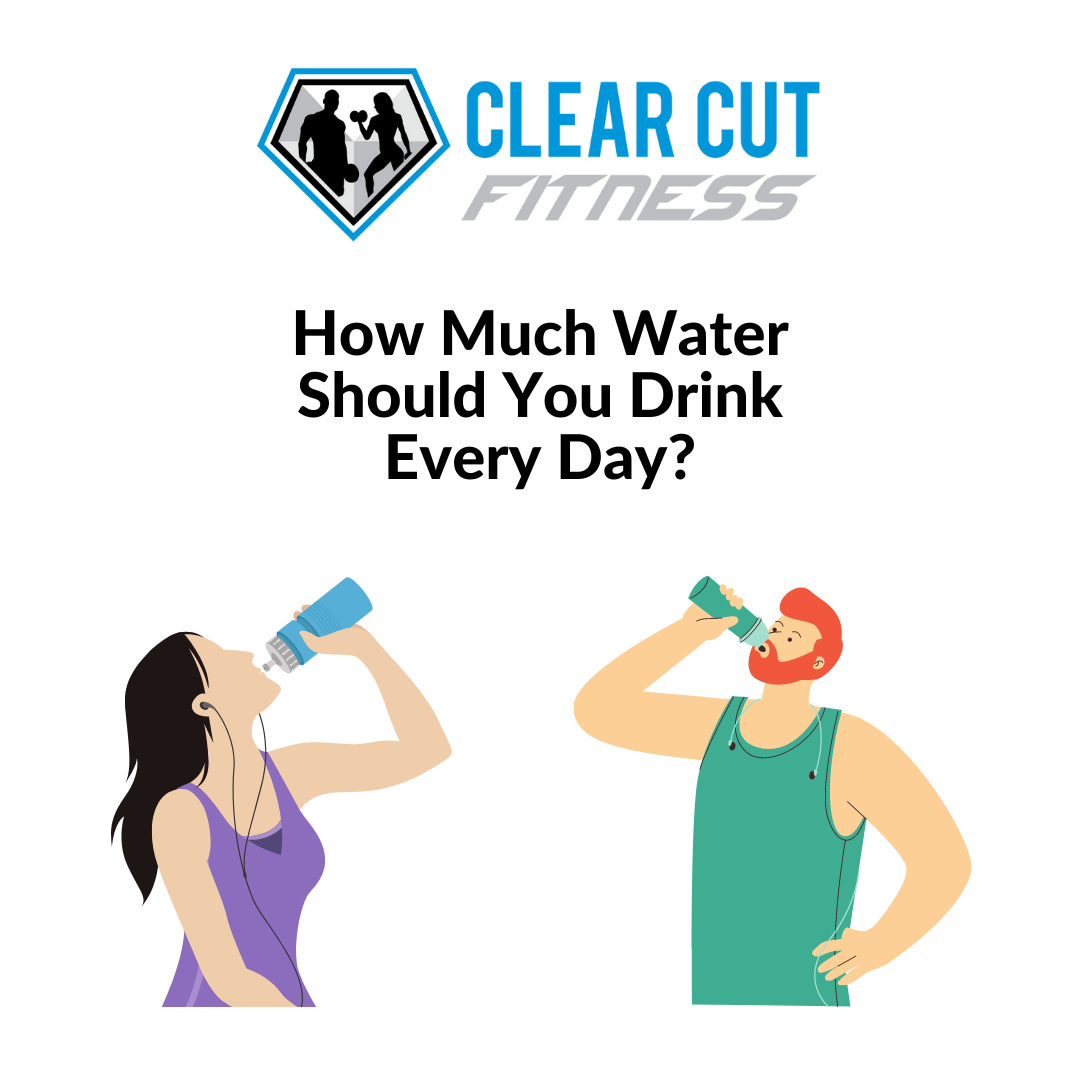How Much Water Should You Drink Every Day?
We’ve all heard the standard “Drink 8 Cups of Water Each Day”, but is it really accurate? And where does it come from?
We also all know that water intake is crucial to life but it also effects things like: exercise performance, cognitive function, mood, organ health (everything from liver to heart to kidneys) your digestion and more. But did you know that drinking water can actually help you lose weight?
Research shows that drinking a cup or two of water before a meal will increase your body’s metabolism by roughly 100cals. That can be a significant amount if you’re dieting trying to lose weight!
Where Does The 8 Cups A Day come from and is it really a thing?
8 cups a day is a general recommendation for the general population. Meaning - it’s not wrong, but it’s also not entirely right. Just like most things in the health and fitness world “everyone’s needs are individual and most water intake is no different.
How Do I Know How Much Water I Should Drink?
Luckily there are a few calculations and guides that are much more accurate than 8 cups a day.
The first and most simple method is a general guideline:
Males should consume roughly 3000mL/ Day (3L)
Females should consume roughly 2200mL/Day (2.2L)
Add 500mL of water per hour of exercise
For example: A standard size bottle of water is 500mL. That means an adult male should consume the same amount as 6 water bottles a day.
Exercise Hydration Needs
Hydration is key to exercise performance. Research shows that a loss of 1-2% bodyweight after a workout “can hinder performance by reducing blood volume (and consequently the body’s ability to maintain a safe/optimal core temperature) and reduce the amount of oxygenated blood that’s pumped to working muscles”. (6)
There are different guidelines you can follow for exercise hydration.
The simplest is to just add 8-12oz per hour of physical activity. So if you hit the gym, or play a hockey game, look to add at least 1 cup (8oz) to your daily recommendation.
A more precise method to calculate your hydration needs is to weigh yourself before an event/workout. Then weigh yourself after the event/workout. For every lb of weight lost after exercise you should drink 2.5 cups (500mL) to rehydrate. For example: Let’s say you weighed in at 160lbs before, and then 158lbs after. That’s a difference of 2 lbs lost. That means you need to drink 500mL x 2 lbs = 1000mL (1L).
Don't take hydration during exercise for granted - drinking fluids during bouts of exercise improve performance by decreasing body temperature, increasing muscle contraction strength and enhancing blood flow.
*There are also more serious calculation methods. Before we get into it, just know that it’s difficult to give exact recommendations because it depends on the activity level, individual sweat rate, bodyweight, amount of muscle mass and more.
Other Sources of Water
Did you know that you don’t just get water from water? Many other liquids and even some foods that you eat contain small amounts of water that do contribute to your overall daily hydration. Some of the following foods contain between 85-95% water:
Cucumber
Tomatoes
Watercress
Apples
Celery
Lettuce
Watermelon
Peaches
Bone Broth
Zucchini
If you wanna get serious about your exercise hydration there are much more accurate calculations (which are ask much more complicated) to help you hone in your fluid needs.
References:
Boschmann, M., Steiniger, J., Hille, U., Tank, J., Adams, F., Sharma, A. M., ... & Jordan, J. (2003). Water-induced thermogenesis.The Journal of Clinical Endocrinology & Metabolism, 88(12), 6015-6019.
Stand, A. P. (2009). Exercise and fluid replacement.Medicine and Science in Sports and Exercise, 39(2), 377-390
Riebl, Shaun K, and Brenda M Davy. “The Hydration Equation: Update on Water Balance and Cognitive Performance.” ACSM's health & fitness journalvol. 17,6 (2013): 21-28. doi:10.1249/FIT.0b013e3182a9570f
Popkin, Barry M et al. “Water, hydration, and health.” Nutrition reviews vol. 68,8 (2010): 439-58. doi:10.1111/j.1753-4887.2010.00304.x
Yamada, Y., Watanabe, D., Sagayama, H., Itoi, A., Yoshida, T., Watanabe, Y., ... & Speakman, J. (2021). Calculation method for daily water intake components using doubly labeled water.
Essentials of Sports Nutrition and Supplements. Antonio , Kalman, Stout, Greenwood, Willoughby, Haff. 2008

